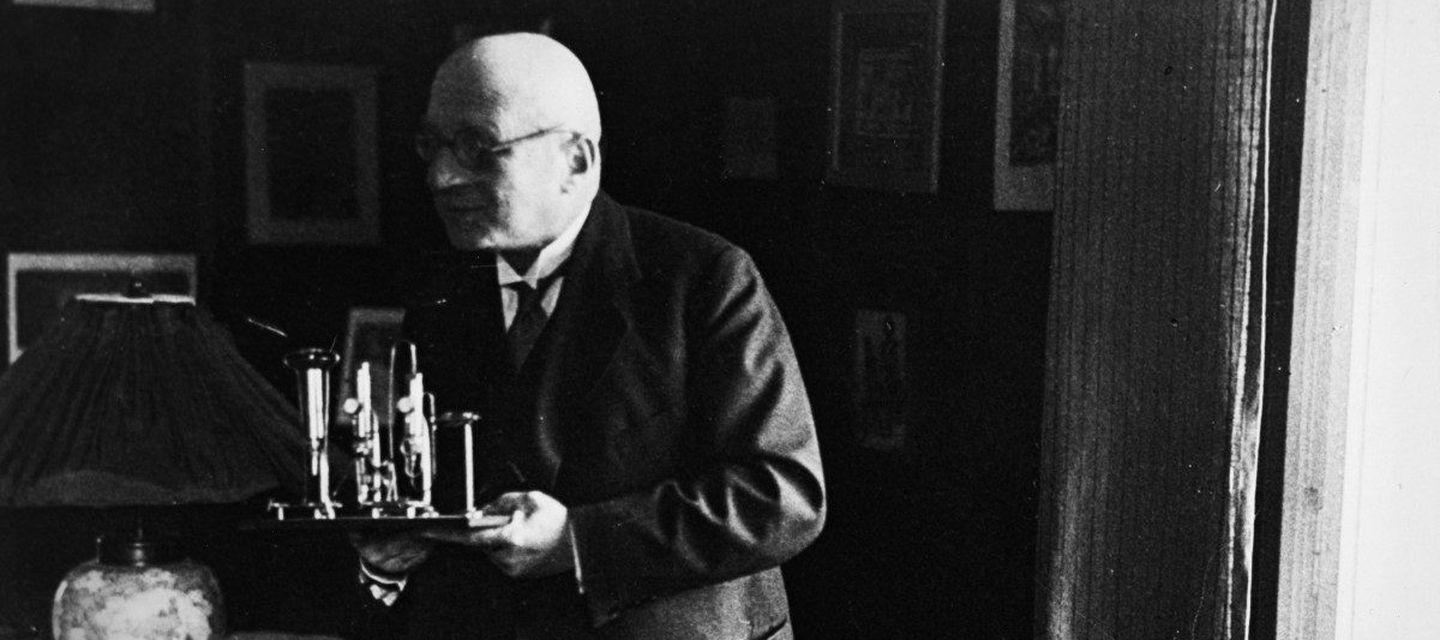
Fritz Haber (1868-1934): The Scientist Who Fed the World and Poisoned the Enemy
Hardly any biography reflects the contradictions of the early 20th century as dramatically as that of Fritz Haber. The chemist was awarded the Nobel Prize for the pioneering invention of artificial fertilisers, but he also introduced poison gas as a weapon in World War I. In this lecture, Stefan Wolff will be speaking about his research on Haber and related questions about the social responsibility of science and the influence of politics on it. Moderation: Mario Daniels.
Scientist Fritz Haber (1868-1934) is regarded as both perpetrator and victim. As professor for chemistry at TH Karlsruhe he succeeded in synthesising ammonia, which made artificial fertilisation possible, the “production of bread from air” in 1909. From 1914 on, Haber—as founding director—put the Kaiser-Wilhelm-Institute for Chemistry and Electrochemistry entirely at the service of war research. This led to the development of explosives and poison gases, which were used for the first time at Ypres on 22 April 1915. Haber’s wife committed suicide, giving rise to the legend that this was a protest against her husband’s work.
Wanted as a war criminal, he briefly fled to Switzerland after the war. In 1919, he was retroactively awarded the Nobel Prize for Chemistry for 1918. The rise of National Socialism brought new concerns. Following the dismissals of Jewish scientists ordered by the Nazi regime, he resigned from his post in protest. He managed to emigrate to England and wanted to help build up science in Palestine, but died on January 30, 1934 during a stopover in Basel.
About the speakers
Stefan Wolff is a Senior Researcher at the Research Institute for the History of Technology and Science at the Deutsches Museum in Munich. His research focuses on the history of physics in the 19th and 20th centuries. Wolff studied physics and gained his doctorate in the history of science. He is currently doing research on the history of the Deutsche Physikalische Gesellschaft during National Socialism; is writing a series of short biographies of murdered members of the German Physical Society and is organizing memorial plaques for them. Furthermore, he is preparing a biography of Arnold Berliner, former editor of the scientific magazine Naturwissenschaften and one of the victims of the NS-state.
Mario Daniels (moderator) is the DAAD-Fachlektor of the Duitsland Instituut Amsterdam. He holds a PhD from the University of Tübingen, taught at the Universities of Tübingen and Hannover, and was twice a research fellow at the German Historical Institute in Washington, D.C. From 2015 to 2020 he was the DAAD Visiting Professor at the BMW Center for German and European Studies at Georgetown University. His latest book, co-authored with John Krige, Knowledge Regulation and National Security in Postwar America, was published with University of Chicago Press in April 2022.
:rgb(-15)

:rgb(-25)

:rgb(8)
